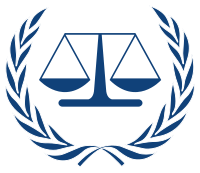International Justice Day and
the International Criminal Court
July 17
International Justice Day commemorates the historic global efforts to end genocide, war crimes, and crimes against humanity and to recognize efforts to prosecute perpetrators of human rights abuses. This is also a day to celebrate the international community’s work to create a more just and peaceful world.
International Justice Day
On July 17, 1998, the international community adopted the Rome Statute which established the International Criminal Court (ICC).
July 17 is celebrated annually to honor the international community’s efforts to provide and enforce human rights law promoting global peace, security, and well-being. This day also commemorates other critically important achievements in holding parties accountable for atrocities in World War II and in the former Yugoslavia, Rwanda, Sierra Leone, and Cambodia.
The International Criminal Court
The ICC is the world’s only permanent international criminal tribunal. It is headquartered in The Hague, Netherlands, and is charged with investigating and prosecuting crimes of genocide, crimes against humanity, aggression, and war crimes.
Some of the key features of the ICC
- The ICC has jurisdiction over the gravest instances of atrocity crimes and targets only the highest priority perpetrators of these crimes.
- The ICC prosecutes individuals, not organizations or governments.
- The ICC is designed to become involved if the state in question is either unwilling or unable to investigate or prosecute genocide, crimes against humanity, aggression, or war crimes that occur within that state’s own jurisdiction. This is referred to as ‘complementarity;’ the ICC acts to complement and enhance the legal system.
- The ICC is not part of the United Nations, though the Court may work at the request of the United Nations Security Council.
- Cases come before the ICC if referred by a state party OR by a non-state party in reference to a situation in its country; if the Office of the Prosecutor opens an investigation into atrocity crimes that occurred in the territory of a state party or crimes committed by a national of a state party; or if the Security Council refers a situation.
The adoption of the Rome Statute creating the ICC was a momentous step towards ending impunity for the perpetrators of the most serious international crimes. The ICC’s work enhances a future of peace and security for the global community.
To date, 122 countries have ratified the Rome Statute.
The United States was instrumental in the drafting of the Rome Statute, the document which created the ICC. The US has not yet ratified the Rome Statute but retains a strong positive relationship with the Court on an ad hoc basis.
Ad Hoc Tribunals
The United Nations established ad hoc international tribunals, building on the precedence set by criminal justice efforts of the Allies after World War II at the tribunals in Nuremberg, Tokyo, and elsewhere. These tribunals were designed to addresses very specific conflicts and cases that occurred during a specific time.
- The International Criminal Tribunal for the Former Yugoslavia (ICTY) was established by the UN Security Council in 1992 to try those responsible for crimes of genocide, crimes against humanity, and war crimes committed during the conflict of the 1990s in the former Yugoslavia.
- The International Criminal Tribunal for Rwanda (ICTR) was established by the UN Security Council in 1994 to prosecute genocide, crimes against humanity, and war crimes occurring between January 1 and December 31, 1994, in Rwanda.
- The Special Court for Sierra Leone and the Extraordinary Chambers in the Courts of Cambodia are hybrid domestic-international courts to try those responsible for atrocity crimes committed during Sierra Leone’s civil war and the genocide in Cambodia during the Khmer Rouge rule, respectively.



